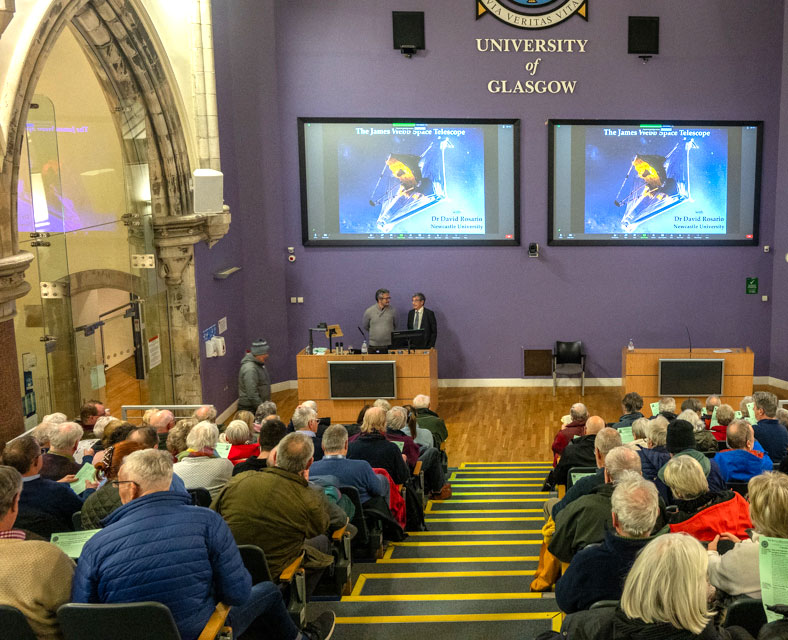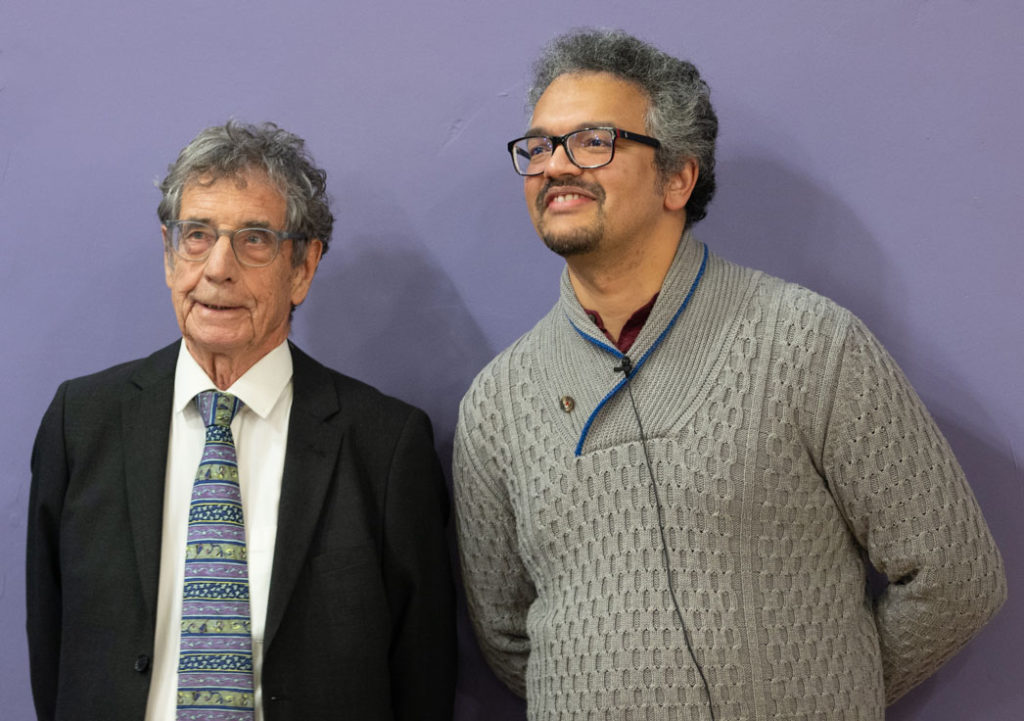
11.01.24
The first commentary from an audience member at a recent Society talk.
The View from the Stalls
The James Webb Space Telescope: back to the beginning of time
ROYAL PHILOSOPHY SOCIETY talks open windows into worlds and ideas that many people (okay, I) never knew existed. Dr David Rosario’s hour and a half on the James Webb Space Telescope (JWST) opened arguably the biggest window of all, on the universe … and possibly beyond.
Dr Rosario – an engaging, articulate and charismatic communicator if ever there was one – flew us through a few technicalities, without sacrificing the intrigue factor. Do you know where the best place is to park your spacecraft in a fixed position with minimum fuel usage, without fear of a ticket? (At the Lagrange Point, of course.) Do you appreciate the necessity to construct your space telescope to the micron, without lubricants? Do you know why gold is the metal of choice for the 6-metre-diameter mirror on the JWST? Do you realise why the JWST “blasts the Hubble Telescope out of the water”? Ah, if only you’d been there!
Big-screen visuals complemented the talk. Balletic animations of technological miracles unfolded; diagrams of telescopes and flight paths enhanced the understanding; like a space launch, Dr Rosario presented with swift precision. With no lack of humour, he took us to exoplanets and to the oldest galaxies yet found. The house was rapt.
But what does the 26 years in the making, $10 billion JWST actually give us, as it peers deeper into the universe in ways only a mega-enthusiastic observational astronomer might comprehend? “Beautiful information.” And, “images from the furthest reaches of the observable universe”. The images are indeed awe-inspiring, intensifying the humbling feeling that we humans are, simply, “dust. We are made of dust. Galaxies are composed of dust. Black Holes blow out dust”. More upliftingly, “we can now see more clearly what we are seeing.”
The Philosophy Society Q&A sessions at the end of talks are always entertaining and thought-provoking, and this one was no exception. The audience touched on AI, the accessibility of JWST data, whether or not the Big Bang had a direction, and finally the heavyweight question: “Do you believe in God?” (Cue audible “Ooooh” from audience.) Dr Rosario, relishing the Q&A sparring, gave a straight answer.
Dr Rosario expressed delight at having the chance to address the Society – “I have never spoken to so many people in the one place at the one time.” At Newcastle University, as Senior Lecturer in Astrophysics, he works with his Active Galaxy Group of young, diverse scientists dedicated to finding, “The first ever galaxy, the first glimmer … where we came from.” The applause at the end was prolonged. The thinking and wondering are still ongoing, because that’s what it’s all about.
Thank you to the Committee for organising the talks. The acoustics were good and so were the drinks afterwards.
Parting thought: if we build a space telescope powerful enough, could it locate God, and if it does, will we be able to see if he’s playing dice?
Croy Thomson
A new members also commented “I would also like to thank you and everyone involved for tonight’s wonderful speaker. This was my first attendance and Dr David Rosario was so enthusiastic, but also made a very complex subject easy to follow and understand. Thank you all. I had a wonderful, uplifting, educational and informative evening.”
The speaker, David Rosario with the Chair for the night, and Hon Secretary of the Society, Tony Burton


